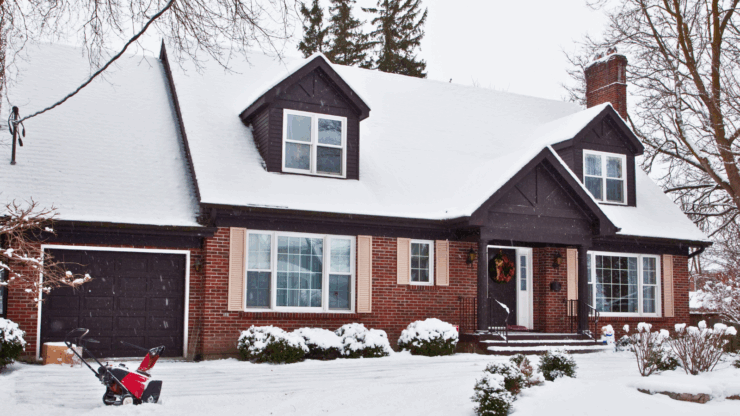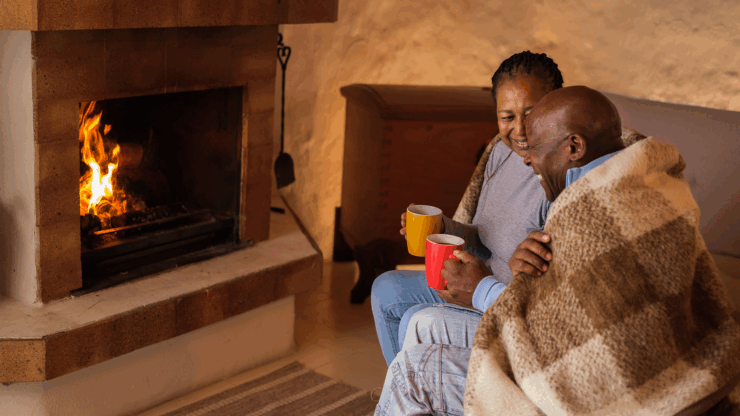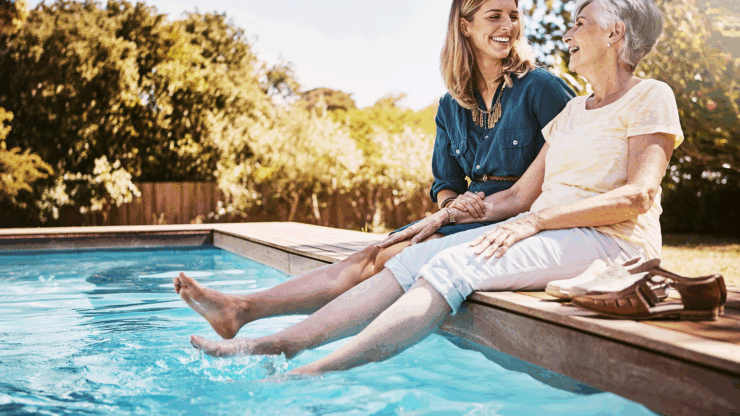
Winterizing a Home: Preparing for Cold Weather
Key Takeaways
- Cold weather increases risks like falls, illness, and power outages for older adults.
- Key steps include sealing drafts, checking heating systems, and stocking essentials.
- Layered clothing and safe heating sources help maintain warmth.
- Planning ahead reduces stress during severe weather.
- LifeWorx caregivers address daily needs and support seniors in all seasons.
As winter approaches, it’s important to dedicate time to preparing your home for the colder months. Proper winterization helps keep you warm and comfortable, reduces energy expenses, and safeguards your property from potential cold-weather damage. For seniors aging in place or individuals living with elderly family members, special precautions are particularly important to ensure their safety and well-being during the winter months.
Improve insulation to keep heat in
One of the most important aspects of preparing your home for winter is improving insulation. Proper insulation will prevent heat from escaping, reducing the strain on your heating system and keeping energy costs lower. Drafty homes can also be particularly uncomfortable for seniors, as their bodies may have a harder time maintaining a comfortable temperature.
- Ensure your attic has enough insulation, as this is where most heat escapes. Adding insulation to the walls, especially in older homes, can also make a significant difference in maintaining warmth.
- Adding thermal or insulated curtains can provide extra protection against drafts and helps keep the warm air inside.
- Cold air can seep through gaps in the windows and doors. Use weatherstripping or caulking to seal these areas. It’s an easy and cost-effective way to improve warmth inside.
Maintain and service your heating system
As the temperatures drop in the winter, your heating system becomes the lifeline of your home. It’s important to make sure it’s in optimal condition before the cold weather sets in. A well-maintained heating system is important for seniors, who may be more susceptible to cold temperatures.
- Schedule a professional HVAC service to have your furnace inspected, cleaned, and have the filters replaced. Keeping up with regular maintenance improves the efficiency of your furnace and reduces the risk of unexpected breakdowns.
- A programmable or smart thermostat gives you the ability to schedule temperature changes throughout the day, so you can conserve energy when you’re away from home or during the night while you’re sleeping.
- Confirm that there are no objects blocking any of the air vents in your home. It’s important to keep the air vents clear to let warm air to flow efficiently and evenly throughout the house.
Check and clean the roof and gutters
Heavy snowfall and ice accumulation can cause significant damage to roofs and gutters if they’re not adequately cared for. Inspect your roof for any missing or damaged shingles that could potentially lead to water leaks is critical. If you notice any issues, it’s best to repair them before the winter weather arrives.
- Climbing ladders to clean gutters or inspect roofs can be dangerous for anyone, but especially for seniors. Hiring a professional to perform these tasks is a wise choice to ensure safety and proper maintenance.
- When gutters are clogged with leaves and debris, it can cause water to back up and form ice dams. This can lead to leaks inside your home. If you live in an area prone to heavy snowfall, gutter guards can prevent these blockages and ensure proper drainage.
Prevent frozen pipes
Frozen pipes are a major concern in winter, and when they burst, the resulting damage can be extensive and costly.
- Pipes in unheated areas, like basements or garages, should be wrapped in foam insulation to protect them from freezing temperatures.
- In particularly cold weather, let faucets drip slightly to keep water moving through the pipes.
- Drain garden hoses and shut off outdoor water lines to prevent freezing and bursting.
Prepare for power outages
During the winter season, severe storms can cause power outages, which can be especially challenging for households that rely on electricity for heating. Power outages can be dangerous for seniors, specifically those who rely on medical devices or have limited mobility. Having an emergency kit and plan is important for ensuring their safety.
- Include essentials such as flashlights, batteries, non-perishable food, blankets, and water in case of a snow-in. Having a battery-powered radio is also helpful for staying informed about weather updates.
- For areas prone to outages, a backup generator can keep appliances like heaters and medical equipment running. Ensure important devices, such as medical alert systems or phones have backup batteries in case of an outage.
Preparing your home for winter is essential to make sure it remains a comfortable, secure, and efficient living space during the colder months. This becomes more critical for seniors, as winter can pose additional challenges. Taking the necessary steps to properly winterize the home minimizes the risk of expensive repairs and provides assurance that the household can handle whatever the season may bring.

















